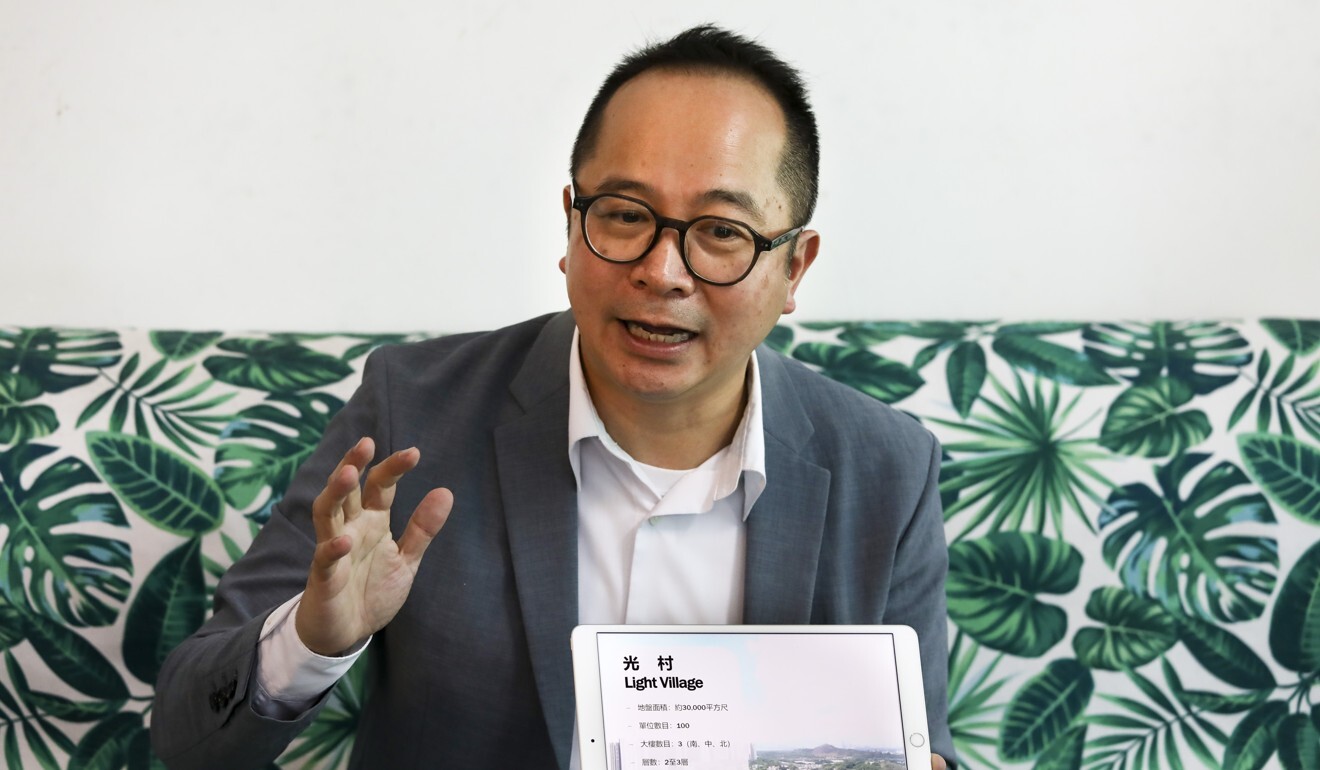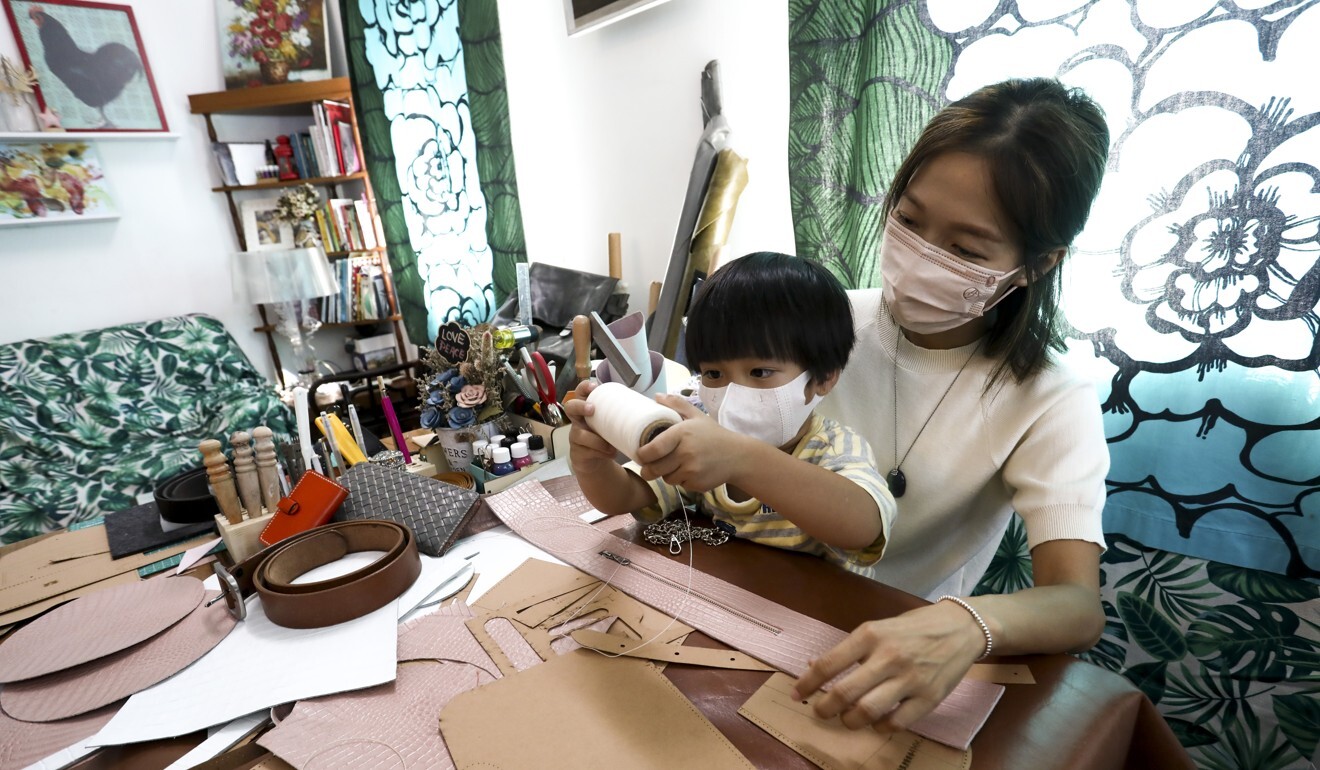
Hong Kong NGO gets rustic site in New Territories to build 100 temporary homes for families facing hard times
- Tenants will get help to uplift themselves, exploring ways to set goals, use talents to earn a living
- Social enterprise Light Be among groups using HK$5 billion fund to build temporary homes
Light Village, next to Tin Shui Wai MTR station, will provide temporary homes for more than 300 people and is expected to be ready for occupation by 2022.
The group behind it, Light Be, has leased a 30,000 sq ft site for the project from New World Development for a token HK$1 (12 US cents) and has applied for government funding and town planning approval.
“We hope future tenants of our village can use their temporary homes as a stepping stone to carve out more economic opportunities by harnessing their own creativity and interests,” said Light Be chief executive Ricky Yu Wai-yip.
Founded in 2010, the social enterprise focuses on housing, and for its earlier projects, sourced property from owners at prices 20 to 40 per cent lower than the market rate.

For the new project, it hopes to help young families in the queue for public housing, although there will be no strict age limit. Rent levels lower than the market rate will be assessed individually, according to each tenant’s financial situation. The mechanism is subject to government approval.
Yu, 52, said his group had been helping families facing temporary financial hardship, and they tended to be younger, with a certain level of education and experience.
As at its other projects, Light Village tenants will each be assigned a mobility manager who will help them set personal development targets, work out a savings plan and explore ways to earn a living. Tenants have to vacate their units after three years.
Yu hoped that the rustic surroundings, including the Ping Shan Heritage Trail, would inspire tenants to think creatively about how they could use their talents to earn an income and move up in life.
Light Village is among more than a dozen projects by NGOs seeking government funding to provide affordable housing.
Hong Kong transitional housing plan ‘more expensive than initially thought’
Chief Executive Carrie Lam Cheng Yuet-ngor announced a HK$5 billion (US$645 million) funding scheme last year to support groups that can provide temporary homes for those waiting for permanent public housing. The average waiting time for the latter is 5½ years, with more than 155,000 applicants on the list.
Under the scheme, NGOs can partner with the private sector to convert existing property into temporary homes, or build new ones, often prefabricated with modular units, on available government or private land.
Among those who have benefited from Light Be’s earlier projects are single mum Ying and her four-year-old son, who found a fresh start after settling into their home on Lamma Island.
Ying, in her 30s, said the group inspired her to pick up her interest in handicraft and try starting a business selling handmade leather goods such as wallets and bags. She also runs handicraft workshops for other tenants as a way to give back.
“Light Be gave me hope that I could change my lifestyle,” she said. “I always thought handicrafting was a hobby, but never thought it could be a way for me to earn an income.”

Housing officials are now seeking lawmakers’ approval to inject an extra HK$3.3 billion into the scheme, as the original budget was not enough to deliver the target of 15,000 transitional homes.
Meanwhile, not all the ideas to emerge so far have been welcomed by the community.
A plan by Pok Oi Hospital to build 711 flats at a site with an abandoned school in Ping Che, in northeastern New Territories, was met with protests recently by concern group Land Justice League.
It argued that the remote rural area, without access to convenient public transport, would make it difficult for tenants to commute to school or work. It preferred to use the site for much-needed centres for the elderly instead.
The project was announced by the government last month and appears to be going ahead despite the objections.
Democratic Party lawmaker Andrew Wan Siu-kin said the transitional housing projects were “a painkiller” to help low-income families through the housing crisis.
“There is no other alternative. The government cannot meet the targets set in its long-term housing strategy,” he said.

